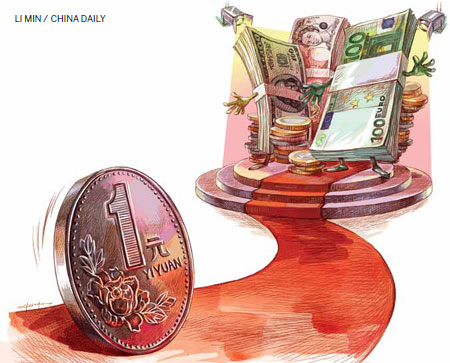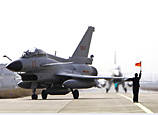
 |
More nations turn to Chinese currency for investment and trade settlement
Although the money markets have gone into a tizzy recently, there have been some unrelated developments that clearly underscore the growing global influence of China's currency, the yuan also known as renminbi.
Indications that the yuan is well on its way to becoming an "international" currency heightened after important currency trading centers such as Paris, Luxembourg, Frankfurt, Sydney and Dubai expressed interest in becoming offshore yuan-trading centers. Major money markets, including Hong Kong, Taipei, Singapore and London, are already part of the lucrative offshore yuan-trading club.
"There is no doubt that the renminbi is gaining international recognition and that there is demand for it outside the Chinese mainland," says Ravi Menon, managing director of the Monetary Authority of Singapore.
"The expansion of offshore renminbi-funding centers as well as the setting up of swap lines between the People's Bank of China and various central banks, including the latest agreement with the UK, bear evidence to this."
He says a stable and thriving Chinese economy is the best foundation on which to further the use of the yuan globally.
Zhang Lei, general manager of the global payment and clearing division at Bank of China, says: "The internationalization of the yuan has entered a critical period as yuan usage is strengthening in regions outside the Asia-Pacific."
Although there are several contenders, the European cities have the best credentials for bagging yuan deals, he says.
 |
















 Hebei woman latest case of H7N9
Hebei woman latest case of H7N9


![]()
